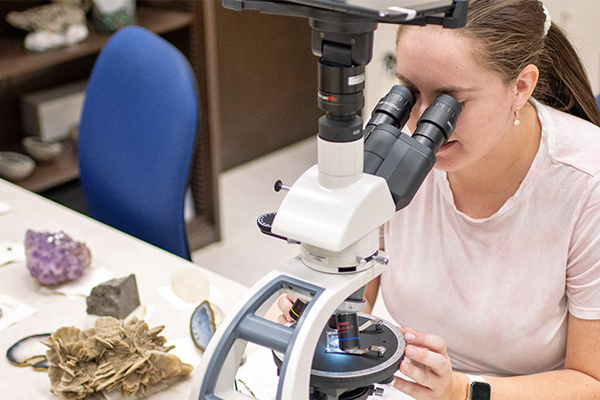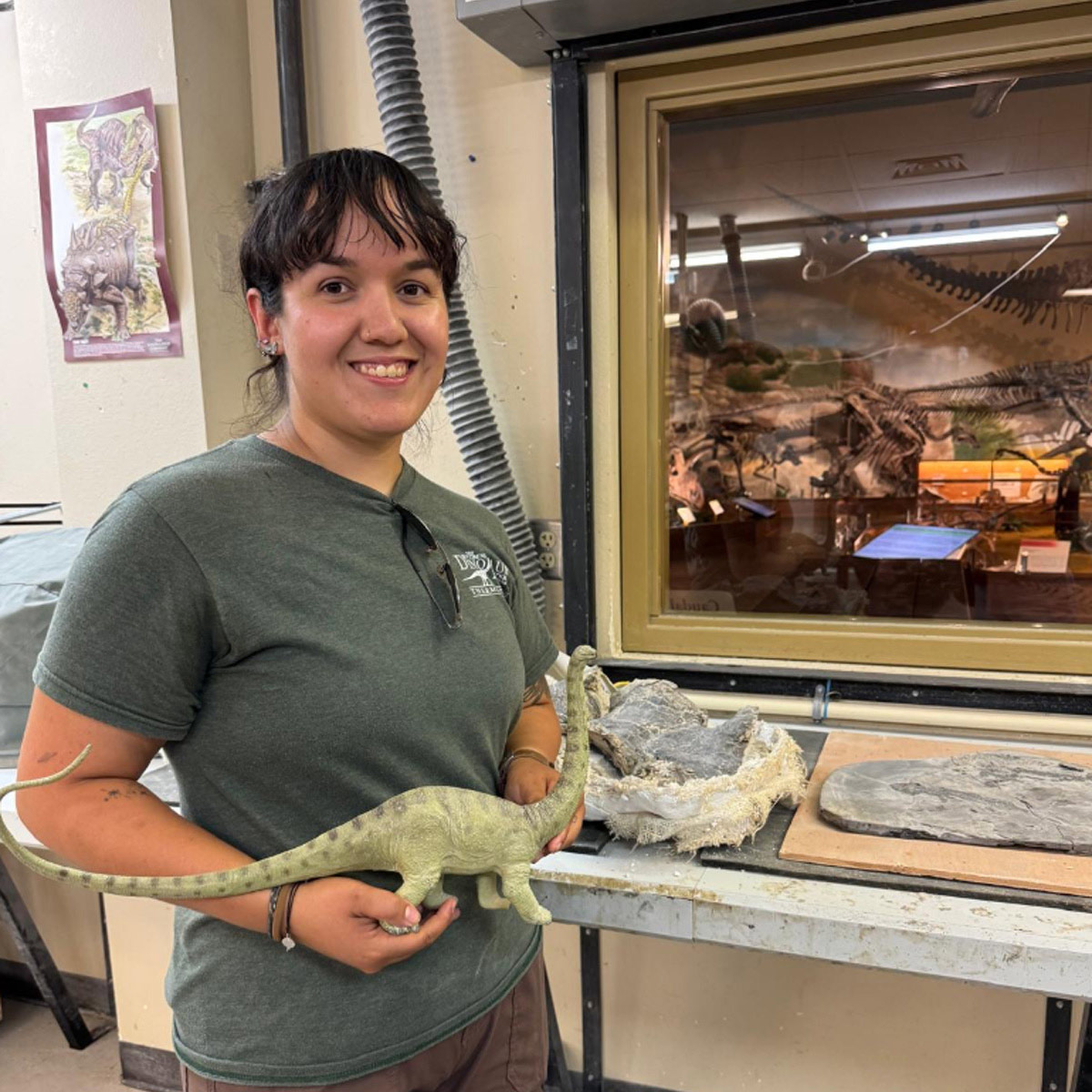Posted on October 13, 2023 by College of Sciences

Mitra Kaushik, Ph.D., Department of Earth and Planetary Sciences
What did your journey to UTSA look like and are you fixed-term track or tenure track?
After graduating high school, I went to the Indian Institute of Technology (IIT) Kharagpur and enrolled in a five-year Integrated Bachelors and Masters course in Applied Geology. I graduated from IIT Kharagpur in 2015 and was awarded the Best Student of the Order of Merit and for the Best Masters Thesis. I worked on a project that was funded by the Indian Space Research Organization (ISRO) to investigate Martian Analog Sites in the weathered Deccan Traps in western India. In 2016, I started my Ph.D. in the Department of Earth & Planetary Sciences at Washington University in St. Louis under Prof. Jeffrey G. Catalano. I was awarded the NASA FINESST student fellowship for my graduate studies for three years. After completing my PhD in October 2021, I joined the Department of Geosciences in the Stony Brook University in New York as a postdoctoral research scholar. I also served as a part-time lecturer in the Institute of STEM Education at Stony Brook University.
I joined the Department of Earth & Planetary Sciences at UTSA from August 2023 as a tenure track Assistant Professor.
What do you enjoy most about your area of study?
Demystifying the laws of nature, predicting what's going to happen, and then see it happening.
Most of Planetary science is done through remote sensing and by running simulations. I study the surface chemistry of Mars by conducting experiments in Mars-like fluid conditions. I re-create the surface conditions on Mars and then study fundamental geochemical processes and try to understand and quantify the rules that govern them. Chemistry and Planetary Science are two areas of my passion and expertise, and I have found a way to do both in my lab.
What are some of the most notable research projects that you've been involved in?
Manganese oxides on Mars have been proposed to be evidence of oxygen in the early Martian atmosphere. In an article that was published earlier this year in Nature Geoscience, I argued that manganese oxides on Mars are not indicative of oxygen in the atmosphere of Mars; rather they indicate that an active and complex halogen cycle was operative on its surface on its surface in the past and also active in the present. The article was covered by multiple news media outlets.
What is your proudest moment with the COS?
In my short span of 2 months, my proudest moment is being a colleague with the esteemed faculty members COS. My happiest moment is when my students did so well in the first assignment in the geochemistry class I teach.
What do you enjoy most about your job?
The most fun part is doing the experiments. I replicate the surface environment of various different planets and then test hypothesis of mineral formation and alteration and investigate fundamental geochemical processes. The challenge of the complexity of bringing both engineering and science together to solve planetary science questions is just like sending a rover to Mars. I feel like the PI of a NASA mission, which I wish to do one day.
How would you spend your ideal Saturday?
Saturday is just like any other workday but on Sunday I spend cooking and spending a lot of time in the La Panaderia shop nearby. My ideal Sunday would include an Almond Croissant, coffee, and a non-academic book!
What are your book recommendations?
Apart from academic books, I would recommend the following
- Thinking Fast and Slow by Daniel Kahneman
- Sapiens by Yuval Noah Harari
- Meditations by Marcus Aurelius
- Everyday Hero Manifesto by Robin Sharma Mahabharata (The Great Indian Epic)

Explore the EPS Department!
With research centers such as the Center for Advanced Measurement in Extreme Environments and the Institute for Water Research, Sustainability and Policy, students have access to diverse research opportunities to foster their education.
Recent EPS Spotlights
View More Spotlights



